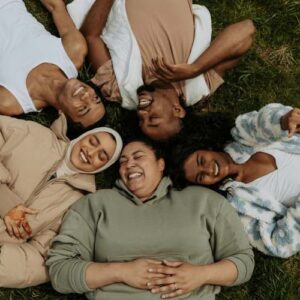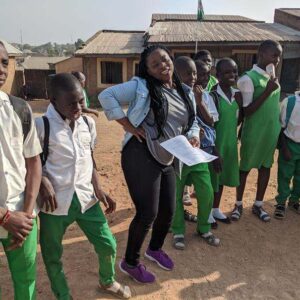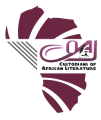About Us
The Custodians of African Literature Initiative (COAL) is an independent nonprofit that empowers children and youth in low-income communities to actively participate as experts in their socio-economic well-being. COAL has worked to bridge the education inequality gaps by offering alternative youth development programming that promotes literacy, civic education, socio-cultural exchanges, creative writing, and gender equality. We believe that the ability to read and write are fundamental for a young person’s success, making books essential for nurturing criticality in young leaders.
We Work through an intersectional approach, acknowledging that structural barriers within society are both a contributing factor to and a result of broader inequality.
Through our programs, we amplify youth voice and provide platforms for literary and creative expressions across communities. COAL is ultimately dedicated to alternative education, fostering higher literacy levels, creative writing skills, and promoting African literature.
Our research highlights Africa’s low literacy rates, with one in three adults and 48 million people aged 15-24 being illiterate. We focus on investing in children’s reading skills to have a positive impact on their academic, personal, and social development. Given the intergenerational nature of low literacy, we collaborate with families, young people, and children, emphasizing books, creative writing, and African literature. COAL works to inspire a well-informed, empowered youth generation contributing to Africa’s growth.
Our Vision
We envision a thriving Africa where every child and youth has unfettered access to quality education and essential skills to lead impactful and fulfilling lives.
Our Mission
We are committed to bridging inequality gaps through alternative education and the amplification of youth voice and agency in Africa.
Our Approach
Literacy
We implement literacy programs in low-income communities, aiming to improve literacy and numeracy skills of children (5-14) and youth (15-30).
African Literature
Through creative writing initiatives, we strive to promote and celebrate African literature, fostering accessibility and a deeper appreciation for the rich cultural heritage and literary contributions of the continent.
Advocacy
We engage in advocacy efforts, urging governments to prioritize education as fundamental to national development.
Research
Our work is underpinned by rigorous research, which informs the design and effectiveness of our programs, campaigns, and advocacy initiatives.
Our Values

Intersectionality
We recognize that societal barriers to inequality are complex and interconnected, by empowering young people to take charge of their education and literary growth, we nurture their potential as active agents of social change.

Diversity
Our strength lies in diverse perspectives and open dialogue. We prioritize equity in all endeavors and continuously learn from others. We celebrate and respect Africa's diverse cultures, languages, and dentities, fostering a safe and supportive environment for every child and youth, regardless of socio-economic background.

Accountability
Striving for excellence drives all aspects of our work, fostering continuous improvement and innovation to achieve our vision effectively. Trust and accountability form the foundation of the relationships we build, both within the organization and with our stakeholders.

Fun
Promoting the love for books among children and supporting youths' creative writing journey demand innovative approaches. We embrace resourcefulness and unconventional solutions to overcome challenges, also ensuring we have fun while at it.
Strategic Objectives
A thriving Africa where every child and youth has unfettered access to quality education and essential skills to lead impactful and fulfilling lives.
SO I : To bridge the gaps in education and empower youths and children with essential skills and knowledge to ensure their success.
S02: Empower young people in inner cities to become economically independent
S03. Contribute to sustainable development practices
RI.1: Improve the literacy and numeracy skills of young people in Inner cities
RI.2: Cultivate creativity and critical thinking among inner-city children and youth.
R1.3: Establish an enabling environment that improves education in marginalized communities.
R2.1: Creatives are enabled to hare their creations with a wider audience.
R2.2: Strengthened market access for creatives
R3.I: Enhance Organizational Capacity for effective and efficient development services.
R3.2: Improve knowledge management systems and decision-making In organizations and the society.

 Cart is empty
Cart is empty